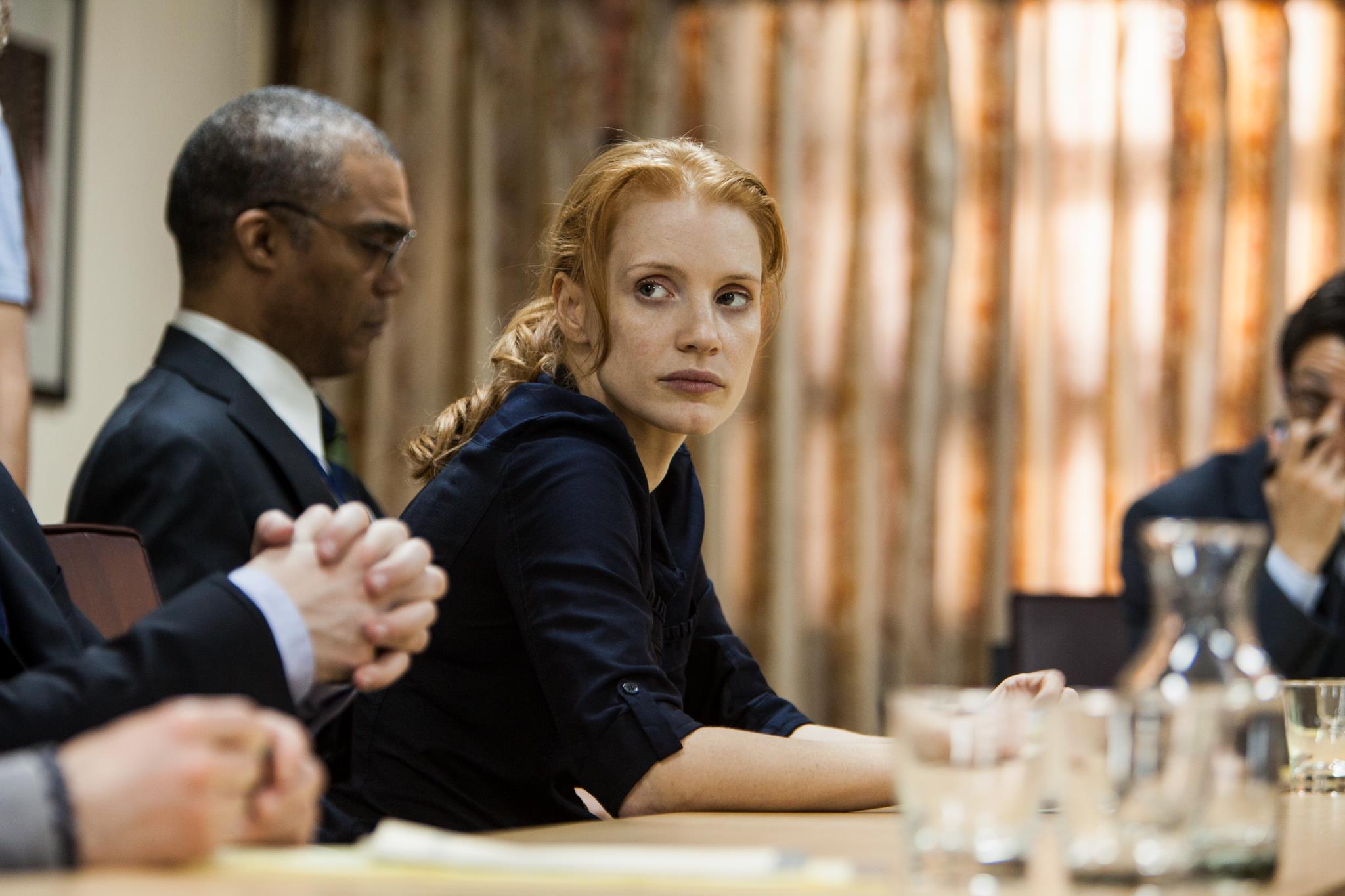 |
| courtesy of collider.com |
I'm always curious what Sir Edmund Hillary did immediately after he finished climbing Mount Everest. This is the tallest mountain in the world and he just conquered it. Where does he go from there? Every other mountain he climbs must seem like a joke. Everything he does from that point on lacks flavor because it will never give him the sense of accomplishment the way climbing Mount Everest did. As great as he felt when he reached summit, how terrible must it be when he got home afterwards, sat in a chair, and realized that the rest of his life may never reach that peak (pun intended) again.
Zero Dark Thirty begins in darkness, as we hear the phone calls from victims of the tragedy on September 11th, 2001. From there, we open at a detainee camp in the Middle East, where a prisoner is being interrogated by CIA/military agents,while being humiliated and tortured. Standing aside is new CIA operative Maya (Jessica Chastain), as she watches in discomfort, refusing to actively take a part, but understanding that important information needs to be obtained. Maya's introduction to the tactics is surreal, but it sets her trajectory in motion. From here on out, by whatever means necessary, she will find Osama Bin Laden. And she will kill him.
Maya works closely with fellow operative Dan (Jason Clarke) in Pakistan, interrogating this man until he gives them a name: Abu Ahmed. This name becomes the center of a search the likes of which has never been accomplished, almost all of which is spearheaded by Maya, even when her supervisors and the U.S. Government isn't on board with her. We follow Maya through everything - her survival of a hotel bombing, Dan's departure to Washington, D.C., the death of fellow agents by a surprise car bombing, and the eventual changing of the guard in Washington, as Obama takes over and condemns those who participated in torturing detainees. All the while, Maya pushes, researches, and scans the microcosm of the Middle East, hoping to find this Abu Ahmed, which, she believes, is the key to finding Bin Laden. Spoiler Alert: we eventually kill Bin Laden. I hope that didn't ruin anything for you.
 |
| courtesy of timeentertainment.com |
What Bigelow and Boal create with Maya is a wholly original character defined solely by her obsession. Maya has rare moments of social discourse and smiles once in a while, but she is, above all, a CIA operative bent on finding the man who orchestrated 9/11. Even the attempts other agents make at loosening Maya up fall by the wayside, as she has done nothing since high school but try to find Bin Laden. Her obsession becomes her way of life, so, in a twisted way, Zero Dark Thirty is about torture: the inescapable torture of a goal that everyone else feels is a lost cause and the realization that, if you never achieve it (or if you do), there's nothing left. There's no meadow beyond it for Maya to go home to. There's just Maya - a lonely soul who may very well have saved millions of future lives.
Other than the above points, common criticisms of the film have also come in the form of missing character development from the loads of people we meet in the film, all of which are CIA agents, soldiers, or detainees. But, this isn't a story about them. While Maya's lack of real "friends" may play to the sentimental side of an audience, she is in one of the few roles in the world where she truly doesn't have time for them. The only person Maya even becomes remotely close to is fellow agent Jessica (Jennifer Ehle) and, by the end of the film, all that's left of that relationship is a photo of them as Maya's computer's desktop background. Bigelow's direction isn't focused on how all these other people feel - it's about one woman and her professional co-dependence on dozens of nameless faces who carry out her sometimes blind plans to execution.
 |
| courtesy of slate.com |
Either way, when the mission is accomplished, outside of some immediate celebratory disbelief by Seal Team Six, this is not a party. Bigelow makes the decision to close with Maya, who doesn't smile once since learning of the mission's success, on a plane, ready to return home. What Jessica Chastain gives us in those closing shots is why she is a frontrunner for Best Actress. She's been walking a tightrope for almost ten years and the net may have just been pulled out from under her. Her moments of silent solitude are extraordinary.
Zero Dark Thirty is political. It's plodding and methodical. It's, at its heart, simply a military procedural. But Bigelow, Boal, and Chastain have created something beyond that. They've created a narrative of one of the most important events of our country's history, but they've done it without making a "proud to be an American" film. While there is less fear brought about by post-Bin Laden al-Qaeda, Zero Dark Thirty isn't about how "we won." It's not anti-war; it's not really anti-anything.
Zero Dark Thirty is a picture of a larger-than-life woman who, while she may be viewed by some as a superhero in the flesh, is just a person so focused on one goal that she has nothing else. Her sacrifice - of a life, of a normal existence, of any relationship beyond the extremely platonic - was for America's gain. She may be proud of what she's done, but that doesn't mean she's happy about how she did it. She doesn't ride off into the sunset. She sits on a transfer plane, waiting to fly back to whatever empty life she has back in America. Alone.
SHOULD YOU SEE IT: Essential
Hiç yorum yok:
Yorum Gönder